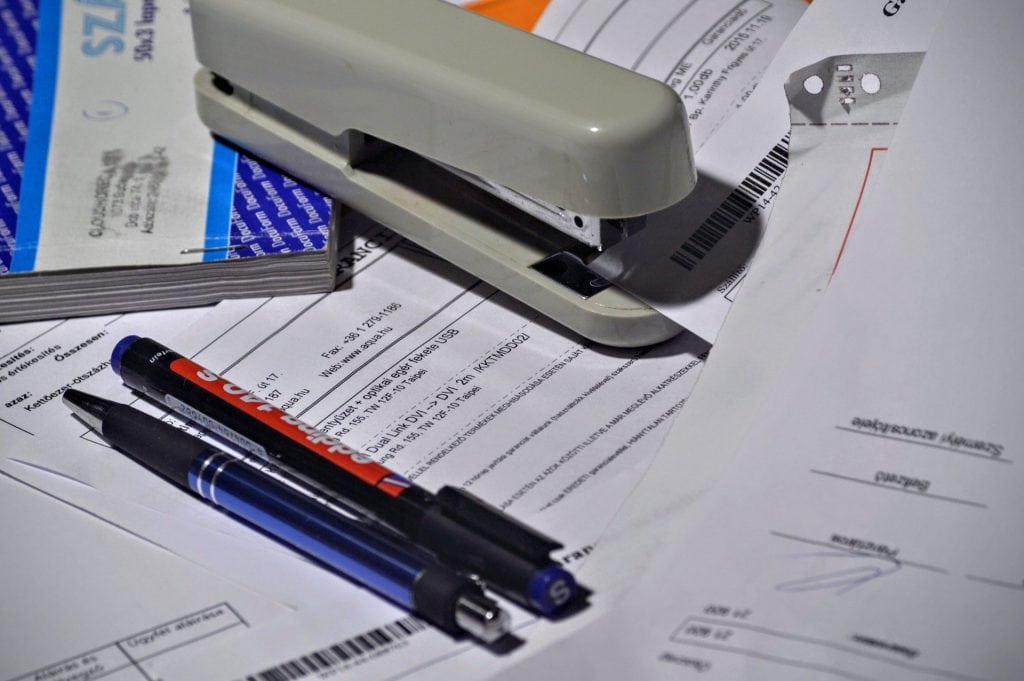Need any help? Contact us:

Table of Contents

Whether an ABN is needed is a common question amongst entrepreneurs starting their own businesses in Australia.
First, let us explain what it is for anyone who doesn’t know. ABN stands for Australian Business Number, a unique code consisting of 11 digits, which identifies your business to others when ordering and invoicing. ABN serves a number of purposes, such as claiming goods and services tax (GST) credits and getting an Australian domain name. But out of all these good reasons to register for an ABN, its impact on invoicing and payment concerns entrepreneurs the most. In this article, we will take a look at the scenarios in which an ABN is legally required, how it affects the financials of your business and some other important points to note regarding ABN registration.
When is an ABN (compulsory)?
If you fall into one of the categories below and your business is expecting a yearly turnover of $75,000 or more, having an ABN is compulsory:
-
You are carrying on or starting an enterprise in Australia
This includes activities done in the form of a business (whether in the form of a sole proprietorship, partnership, limited or unlimited company), a fund, a charity and the renting and leasing of property. To qualify as a business, activities have to be carried out with an intention to make a profit (as opposed to a hobby).
-
Freelancers/ self-employed
Freelancers and self-employed individuals are treated as running an individual business, as such, they are also required to quote an ABN when they issue an invoice. This means, whether you are a freelance writer, an Uber driver or a self-employed personal trainer, you would need an ABN in order to get your pay.
-
Contractors
All contractors, whether you call yourself an independent contractor or a sub-contractor, are required to quote an ABN on their invoice.
-
Employees
Employees not entitled nor required to have an ABN for work, including as an apprentice, trade assistant or labourer. An employer shouldn’t ask you to get an ABN as a condition of employment. It is, therefore, crucial to find out if you are a contractor or an employee.
-
Your business is making supplies connected with Australia’s indirect tax zone
This applies to businesses that are located outside Australia but are making supplies connected with Australia’s indirect tax zone (i.e. including Australia but not its external territories or certain offshore areas.
-
Your company is a Corporations Act company
Companies registered with the Australian Securities & Investments Commission.

Invoicing without an ABN
If the yearly turnover of your business is below the aforesaid threshold, ABN registration is optional, but it makes running your business easier, especially when it comes to invoicing. According to the Australian Taxation Office, an invoice must be provided to the customer within 28 days for any amount equal or greater than AU$82.50 (including GST) or when a customer requests for one. If an ABN is not quoted in an invoice and the total payment is more than $75 (excluding GST), the party paying the invoice is legally required to withhold 47% of the invoice amount (the no-ABN withholding rule). The withheld amount is sent to the Australian Taxation Office and the seller will only be able to claim this amount as credit in their next income tax return. This rule is designed to ensure that businesses, especially those that are not required to be registered for GST, do not request cash payments in an attempt to avoid their tax obligations.
If you are running a business, you would know why this is an undesirable situation. Withholding payment negates both the cash flow and the profitability of your business, which might prevent it from meeting its liabilities on time and forcing it to access other sources of finance. It also makes bookkeeping and accounting more complicated, ultimately wasting more resources on keeping track of revenue and projecting accurate financial forecasts.
Exceptions to compulsory ABN
A payer does not have to withhold 47% if the seller is eligible for submitting a document known as the ‘statement by a supplier’. If you fit into one of the following scenarios, you can use the form to avoid the no-ABN withholding rule:
- the enterprise is not in Australia;
- the activities were not carried out with an expectation of profit;
- the supply of the goods or services was not made in the course of carrying on a business (e.g. private recreational activities/ domestic activities);
- the sale amount is $75 or less, excluding any GST;
- an individual under 18 years and the payment does not exceed $350 per week; and/or
- the whole of the payment is exempt income (i.e. certain types or amounts of income not subject to income tax).
Sellers and individuals who misrepresent their business circumstance and the value of the transactions will be subject to heavy penalties. The Tax Office also requires the payer to maintain complete records in order to identify the seller and verify purchase transactions.
How to apply?
You can obtain an ABN for free by applying through the Australian Business Registration. Provided you supply all the required information, you can complete the online application and receive your ABN immediately. If you have omitted relevant information or the information cannot be verified, your application will be processed manually and it can take up to 28 days. Once you receive your ABN, remember to display it on your invoices alongside your contact details. Your ABN will appear on the ABN lookup, an online tool, where the public can find your company’s name and its ABN along with other public records.
Changes and cancellation
You are responsible for keeping your ABN details up to date. If there are any changes to your ABN details, you must update this information within 28 days. If your business structure changes you may need to cancel your ABN and apply for a new one. You can update or change your details online or by contacting the ABR.
Points to note
Note the difference between ABN and ACN (Australian company number). The latter is issued to you when you set up your company and registered it with the Australian Securities and Investments Commission. You will need to provide your ACN when applying for an ABN.
Each business entity receives one ABN, regardless of the number of commercial activities it undertakes. For example, a single partnership that runs both a bookstore and a coffee shop will use the same ABN. However, if you plan to maintain multiple business entities, you will need to apply separate ABNs for each of them.
Having an ABN does not automatically mean you are registered for GST, vice versa. You have to separately make the two registrations.
Key Takeaways
- If you fall into one of the three categories and have an annual turnover above $75,000, ABN registration is compulsory.
- Any invoice for an amount above $75 requires an ABN, or the payer is compelled to withhold 47% of the amount unless the seller qualifies for the ‘statement by a supplier’ form.
- Application is free but be mindful to keep your ABN information up to date.
- Note other tax requirements such as registering for GST.
This article does not constitute legal advice.
The opinions expressed in the column above represent the author’s own.

READ MORE: What are the Australian PAYG tax instalments?
FURTHER READING:
How to set up business in Australia as a Foreigner
Australia Company Incorporation Guide




